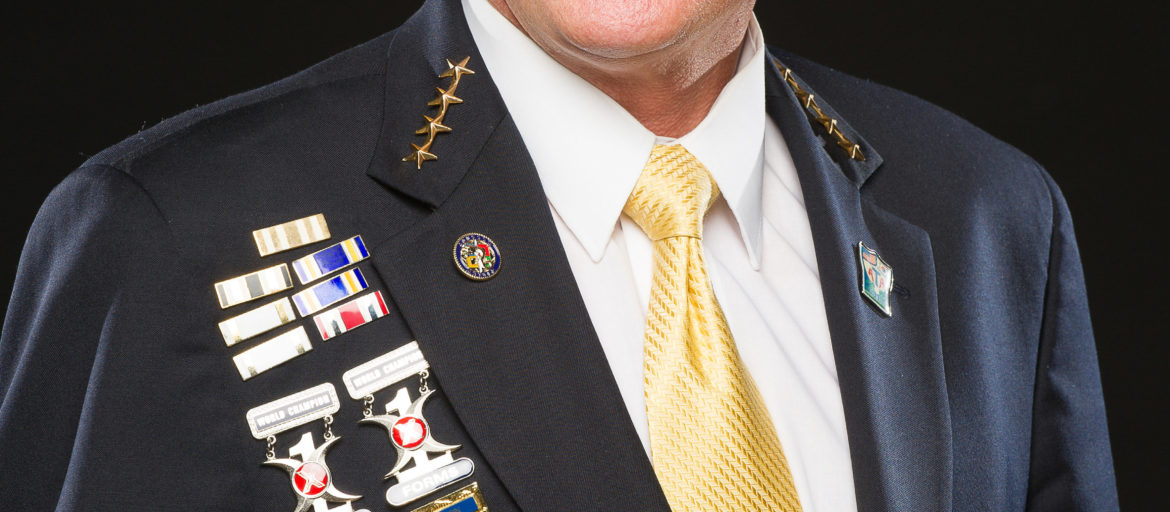“Men are respectable only as they respect.” – Ralph Waldo Emerson
All of our life skills, like discipline, honor, integrity, courtesy and respect, form the bedrock of traditional martial arts. These values set us apart from any other sport or activity and define what it means to be a martial artist.
We teach these life skills on a regular basis. We say, “Have honor and do the right thing. Act in a dignified way. Show respect for others”. And so on. But the best way to teach these life skills is by giving you concrete examples. So this month I want to reveal…
A Stunning Example of Respect – In the Middle of Tragedy
If you want to see a real life example of people demonstrating life skills, look to the Japanese people and how they acted in the days following their triple tragedy: killer 9.0 earthquake, massive tsunami and nuclear meltdown. With chaos and devastation like that, you’d think all the rules would be thrown out the window: Every person for him or herself. Right? Wrong.
While reporting from Japan, the news media noticed something very different in the way the Japanese people were reacting to events. Something surprising. Something different from all the other disasters they covered in the past: There was no looting or lawlessness in Japan. Instead, there was order. Right after the tsunami, people – many of whom lost everything themselves – volunteered to look for survivors. They set up shelters and cared for the wounded. Restaurant owners served free food to the community. And grocery stores and other markets actually cut prices.
Jack Cafferty of CNN pointed this out and posed the following question on his blog: “Why Is There No Looting in Japan?”
After all, he explained, looting is something we see after almost every tragedy: people looted after the earthquakes in Chile and Haiti, after floods hit England in 2007 and after Hurricane Katrina devastated the gulf region in 2005 (as well as when sports teams win like the Bulls and the Lakers). Anyway, Cafferty posted the question on this blog and waited for answers. The results were fascinating. Although he received more than 130 answers, most of them share a common theme. I want to share some of the best ones with you.
The Best Answers to Why People Don’t Loot in Japan
Natasha said, “The Japanese are resourceful, innovative people with a great sense of national pride. While watching the devastation in Japan is heartbreaking, it’s so refreshing to see the civility of people within the calamity they are facing”.
Russ answered “Respect for the rights and property of others, something that is seriously lacking in the USA? Having worked for some weeks in Japan in the past, I was always amazed at the courtesy and respect shown to others. One could even see store workers practicing bowing before the stores opened to customers.”
RedBow said, “It is their up-bringing! They are taught to honor and respect their elders”
Judy replied, “I was at a business hotel in Tokyo years ago and I will always remember this little observation. Every floor has the fire extinguisher in the hallway, just the can sitting on the floor. Not in a cabinet, not chained to anything, no need to break any glass. It will not cross anyone’s mind to steal it, kick it, or move it. I admire their disciplinary culture and it is very much needed at a time like this.”
Jim said, “In Japan the people share … beliefs, respect for learning, and respect for each other.”
Ron said, “We have seen American cities and Mid-Eastern cities looted during disasters. It is refreshing to see respect for each other in Japan.”
Sonny said, “Japan is a nation that thinks in terms of the collective good. They realize that when one suffers, they all suffer. Every member of society is afforded respect, simply by being a member of society.”
Paul replied, “From what I understand it’s because Japanese culture is all about being humble and respecting others.”
Bizz said, “In Japan they are taught at birth manners and respect for their country.”
Kim said, “The Japanese society is based primarily on honor and dignity. Unlike our Katrina disaster, the Japanese don’t see this as an opportunity to steal everything in sight. The so-called civilized world can learn much from the stoic Japanese”.
Tom said: “The Japanese are raised with self-respect and respect for others. Their honor is of more value to them than a television set.”
Donna said, “I lived in Japan for 3 years. There is a real sense of community and family with respect for themselves and other people that you don’t see anywhere else. It is passed down to them by their parents.”
Kathie said, “Love and respect for each other!”
Larry said, “I was blessed to visit Japan several years ago on business. I was told if I lost my wallet in downtown Tokyo, the person who found it would make it their mission to return it to me intact. These people are very gracious and kind.”
Kea said, “One word: Respect. The Japanese culture has been infused with morals and ethics for centuries. Children grow up learning respect at home and at school, and these lessons follow them throughout life.”
Are You Seeing A Pattern Here?
CNN’s Cafferty summed it us as the Japanese “being true to their moral code even in the darkest hours”. What is this moral code? The answer is simple: Respect. If you ever wanted to see how the value of respect works in practice – in the real world outside our academy, demonstrated by an entire people, look no further than the Japanese and how they are dealing with their tragedy. This is precisely the type of respect we at Karate for Kids strive to instill in our students! Is it any wonder Japan is one of the originators of martial arts? Is it a coincidence that Japanese society reflects these same martial arts values of courtesy, respect, dignity and honor? It doesn’t surprise me at all.
The Meaning of Respect
What is respect? Respect means “taking someone else’s feelings, needs, thoughts and ideas into consideration”. It also means admiring others and honoring their wishes and knowledge. Finally, when dealing with others, you take their position into account. For example, you treat your instructors, teacher and parents differently than you do your buddies.
As you saw from the Japanese example, living with respect brings many advantages to you. People reach out to help you more. More opportunities present themselves. Society works more smoothly and you can put your trust in others easily. And when you earn the respect of others, you can look forward to better grades, more friends and a better career, no matter what path you choose.
So here are some solid ways to demonstrate respect:
How To Develop Respect
- Answer up with, “Yes, Sir” and “Yes, Ma’am” when speaking to others (especially senior ranks).
- Bow in before you step onto the floor.
- Attend classes consistently and get to class on time
- Keep your uniform clean, pay attention in class and listen to your instructors.
- Stand at attention like a black belt before class begins and avoid horseplay.
- Treat your seniors and juniors with honor – the way you would like to be treated.
- Take your schoolwork and academics seriously.
- Respect school rules and policies (like no gum-chewing in class or running down the halls).
- Treat your classmates in a kind, courteous manner (ex. listen while classmates share their ideas and thoughts).
- Pitch in and volunteer for activities in class.
- Do not tease, mock or bully others…ever!
- Offer to help out with chores at home.
- Mind your parents and treat your siblings the way you would want to be treated.
- Respect other family members’ property and feelings.
- Keep your room neat and organized (this also shows respect for your possessions).
- Heed home and family rules (such as curfews, etc.).
- Treat your body with respect: Eat right, avoid junk food, avoid risky behavior and exercise regularly.
- Take responsibility for your behavior.
- Stand up for your own viewpoints with your peers.
- Show discipline, follow-through and commitment.
- Stick to your goals and work towards them.
- Honor your commitments to others, show integrity and set a good example.
- Respect your own decisions and respect yourself.
We should all strive to emulate the incredible example of respect (as well as honor, dignity, courage and grit) that the Japanese people are displaying while dealing with their multiple disasters. They are truly a shining example for the world and show how to embody the martial arts value of respect.
–Senior Master William J. Babin




